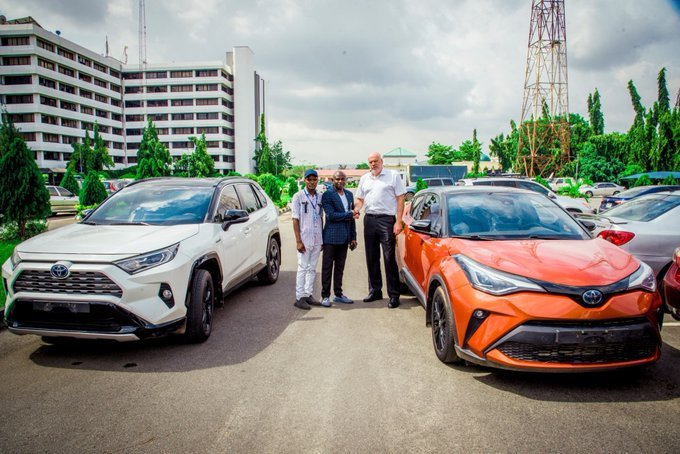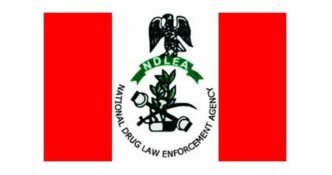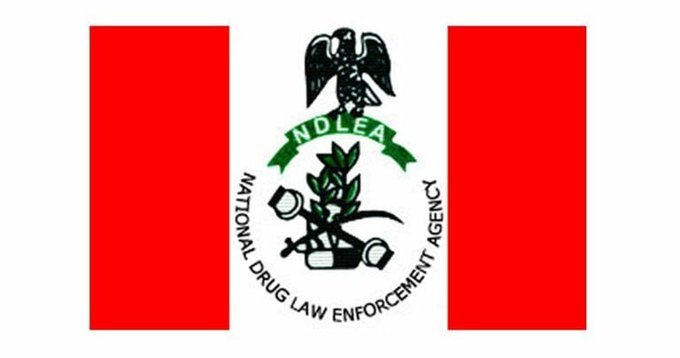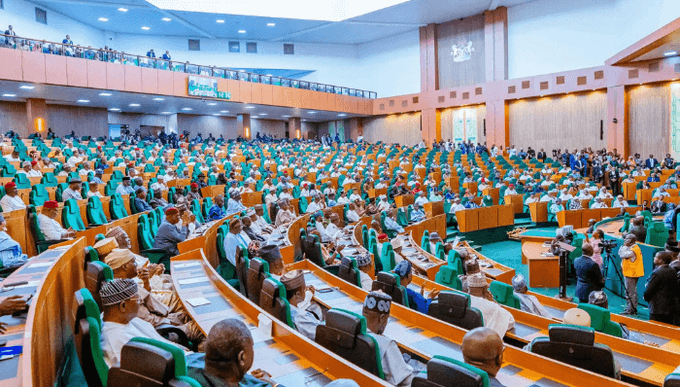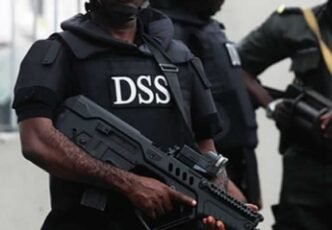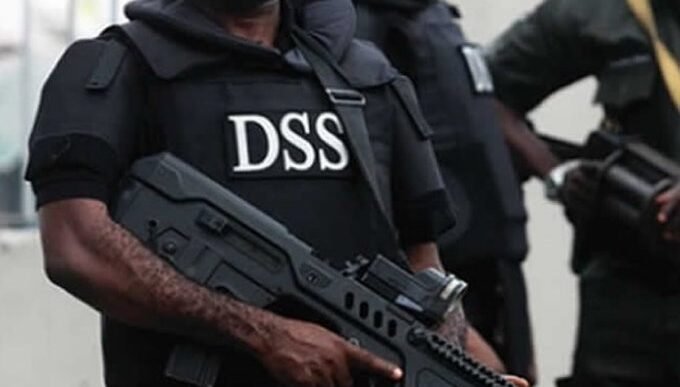Abuja, Nigeria — October 21, 2025
The Nigeria Police Force (NPF) has announced a major breakthrough in the ongoing fight against transnational organized crime, following the successful recovery of two high-end vehicles stolen from the Netherlands and illegally shipped into Nigeria.
According to a statement issued on Monday by the Force Public Relations Officer, ACP Olumuyiwa Adejobi, the operation was carried out through coordinated intelligence sharing between the Nigeria Police and the International Criminal Police Organization (INTERPOL), resulting in the identification and seizure of the stolen cars in Lagos.
The vehicles, identified as a 2023 Range Rover Vogue and a 2022 Mercedes-Benz GLE 450, were traced through INTERPOL’s global database of stolen assets, after law enforcement agencies in the Netherlands alerted international partners about their illegal export.
“This recovery demonstrates the Nigeria Police Force’s commitment to combating cross-border criminal syndicates involved in vehicle theft, smuggling, and international fraud,” Adejobi stated. “We are working closely with INTERPOL and our European partners to ensure that Nigeria is not used as a destination or transit point for stolen assets.”
How the Operation Unfolded
Police sources revealed that the vehicles were shipped into Nigeria through the Tin Can Island Port, Lagos, concealed in containers falsely declared as containing household goods.
Following a tip-off from Dutch authorities via INTERPOL channels, Nigerian investigators launched a joint operation with the Nigeria Customs Service (NCS) and the National Central Bureau (NCB) Abuja, leading to the discovery of the vehicles at a bonded terminal in Apapa.
The cars, each worth over €150,000 (approximately ₦270 million), were found with forged customs documents and altered chassis numbers, an indication that the smuggling operation was coordinated by an organized criminal network with international reach.
“Our investigation uncovered a sophisticated syndicate that specializes in re-registering stolen foreign vehicles with counterfeit papers for sale in Nigeria and other parts of West Africa,” said Deputy Inspector General of Police (FCIID), Sylvester Alabi. “This network operates across borders, and we are determined to dismantle it completely.”
Collaboration with International Agencies
The successful recovery of the vehicles, police say, was made possible through enhanced data sharing and real-time communication between Nigerian and European law enforcement agencies under the INTERPOL Stolen Motor Vehicle (SMV) Database.
“This operation underscores the value of international policing cooperation,” Adejobi noted. “By sharing intelligence and tracking stolen assets electronically, we can intercept and return property to its rightful owners, no matter where the crime originates.”
The recovered vehicles have been placed under police custody pending further verification and repatriation to the Netherlands through official diplomatic channels.
Ongoing Investigation and Arrests
The Nigeria Police confirmed that three suspects linked to the smuggling operation have been arrested in Lagos and are currently assisting investigators. The suspects — identified only as two clearing agents and a car dealer — are believed to have coordinated the importation, falsified the shipping documentation, and attempted to register the vehicles locally.
“Preliminary findings show that the suspects belong to a wider network that imports stolen cars into West Africa under fake identities,” a senior officer at the Force Criminal Investigation Department (FCID) disclosed. “We are tracing their accomplices, both in Nigeria and abroad.”
Police say efforts are ongoing to track down additional vehicles imported under similar circumstances, with a number of leads already being pursued in Port Harcourt, Abuja, and Kano.
A Growing Trend of International Vehicle Theft
Experts have described the recovery as part of a larger effort to combat a global rise in cross-border vehicle theft, in which stolen cars from Europe and North America are smuggled into African markets through complex logistics and document forgery networks.
According to INTERPOL data, more than 200,000 vehicles are listed as stolen across its databases each year, with a significant number ending up in sub-Saharan Africa, where demand for luxury cars is high and verification systems are less stringent.
In recent years, Nigerian authorities have intensified efforts to counter this trend, with the INTERPOL National Central Bureau (NCB) Abuja playing a leading role in tracing and intercepting stolen vehicles entering the country’s ports.
“Nigeria is no longer a safe haven for international car theft syndicates,” said Commissioner of Police (INTERPOL Desk), DCP Abubakar Musa. “We now have digital tools that instantly cross-check chassis numbers, registration details, and ownership records with INTERPOL’s global systems.”
Partnership with Customs and FRSC
The Police also disclosed that they are working closely with the Nigeria Customs Service (NCS) and the Federal Road Safety Corps (FRSC) to create a unified vehicle verification platform, allowing security agencies to verify the origin and customs clearance status of imported cars in real time.
This initiative, according to officials, will make it difficult for stolen vehicles to be registered or resold within Nigeria without detection.
“We are linking customs records, FRSC licensing data, and INTERPOL’s database to create a single window for vehicle verification,” Adejobi explained. “Once operational, it will instantly flag any vehicle reported as stolen abroad.”
Diplomatic and Legal Implications
Authorities in both Nigeria and the Netherlands have welcomed the successful recovery as a model for future collaboration against organized crime. The Dutch Embassy in Abuja commended the Nigerian Police for their professionalism and swift response, describing the operation as “a shining example of global law enforcement cooperation.”
A Dutch law enforcement representative, speaking through the embassy, said:
“We are impressed by the Nigeria Police Force’s prompt coordination and investigative expertise. This partnership reinforces our shared commitment to justice and crime prevention.”
Legal experts say that under international conventions, stolen property recovered in another country must be returned to its rightful owners through mutual legal assistance and INTERPOL channels — a process already underway in this case.
Commitment to Continued Crackdown
The Inspector General of Police, Kayode Egbetokun, praised the officers involved in the operation and reiterated the force’s commitment to combating transnational crimes through intelligence-led policing and technology.
“This success is a clear message that Nigeria will not tolerate the importation or sale of stolen vehicles from any part of the world,” Egbetokun said. “We will continue to work with our partners to identify, intercept, and dismantle criminal networks operating across borders.”
He also urged car buyers and dealers in Nigeria to always verify vehicle histories before purchase to avoid legal complications, warning that ignorance would not be accepted as an excuse.
Looking Ahead
Security analysts have hailed the recovery as a significant win for Nigeria’s law enforcement community and a boost to the country’s international reputation for cooperation in global policing.
With the rise of cross-border crimes involving technology, authorities say the Nigeria Police Force is now prioritizing digital crime prevention, improved data integration, and forensic tracking to enhance future operations.
“This success is not just about two cars,” said security analyst Dr. Ugochukwu Eze. “It’s about building trust between Nigerian and international law enforcement agencies and showing that Nigeria is ready to play its part in global security.”
The recovered vehicles are currently held at the Force Headquarters in Abuja, awaiting repatriation to the Netherlands, as investigations into the wider criminal network continue.


